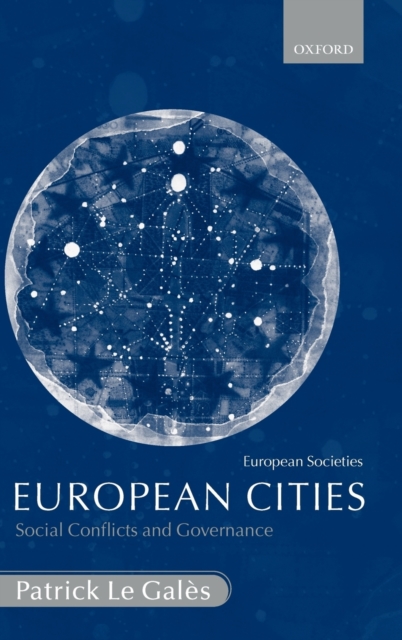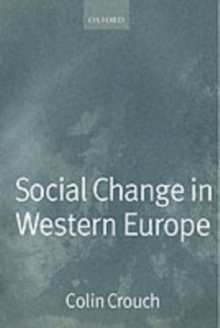
European Cities : Social Conflicts and Governance Hardback
by Patrick (, CNRS senior research fellow with CEVIPOF, and associate professor of politics a Le Gales
Part of the European Societies series
Hardback
Description
European cities are on the rise, and are taking advantage of the opportunities of the European integration and globalization processes.
But they also face economic changes, social inequalities, poverty and a new set of constraints.
Taking examples through the European Union, European Cities explores the impact of the transformation of the nation states on cities and the change of local societies and local governments.
It argues that new modes of urban governance are emerging, and that cities are becoming collective actors within European governance.
European Cities shows why and how the bulk of European cities still appear to be original forms of compromise, aggregation, representation of diverse interests, and culture.
Different modes of governance are gradually being structured in most middle size European cities despite processes of social exclusion segregation accompanied by the increased mobility of some citizens.
Are Europeans going to invent a new form of institutionalized and territorialized capitalism, of which medium-sized European cities will be one of the pillars and one of the actors ?
Failing that, the effects of changing scales could be expressed as profound transformations of the European urban model. European Societies SeriesSeries Editor: Colin CrouchVery few of the existing sociological texts which compare different European societies on specific topics are accessible to a broad range of scholars and students.
The European Societies series will help fill this gap in the literature, and attempt to answer questions such as: Is there really such a thing as a 'European model' of society?
Do the economic and political integration processes of the European Union also imply convergence in more general aspects of social life, like family or religious behaviour?
What do the societies of Western Europe have in common with those further to the east?
This series will cover the main social institutions, although not every author will cover the full range of European countries.
As well as surveying existing knowledge in a way that will be useful to students, each book will also seek to contribute to our growing knowledge of what remains in many respects a sociologically unknown continent.
Information
-
Out of stock
- Format:Hardback
- Pages:280 pages, numerous maps and tables
- Publisher:Oxford University Press
- Publication Date:08/08/2002
- Category:
- ISBN:9780199243570
Information
-
Out of stock
- Format:Hardback
- Pages:280 pages, numerous maps and tables
- Publisher:Oxford University Press
- Publication Date:08/08/2002
- Category:
- ISBN:9780199243570










